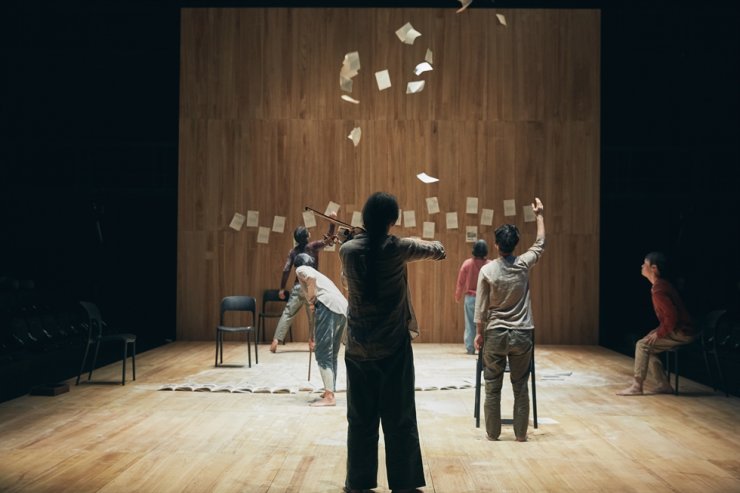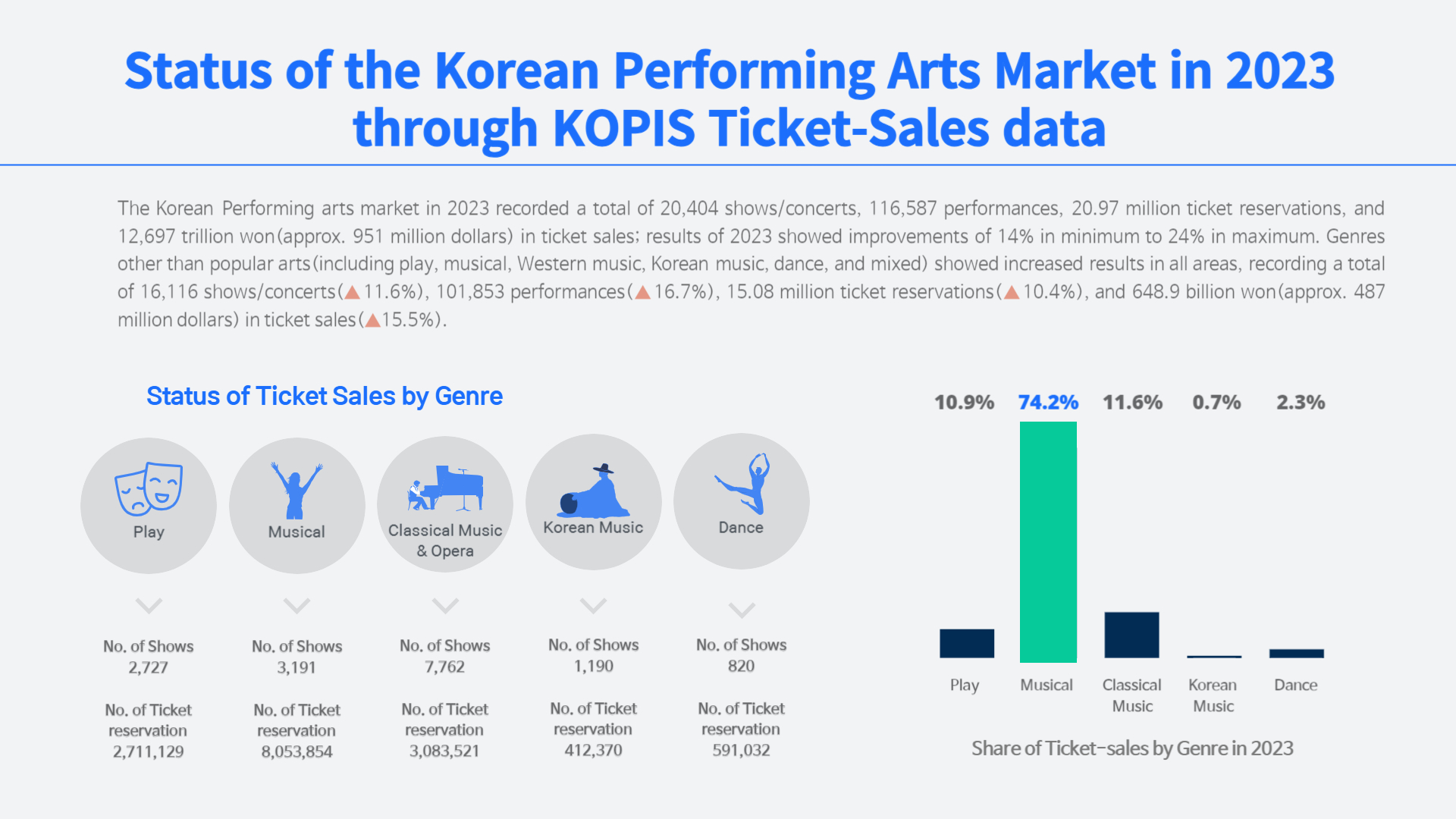By Kwon Mee-yoo [meeyoo@koreatimes.co.kr] of The Korea Times (Nov 13, 2019)

(A scene from "Human Fuga," based on Han Kang’s novel "Human Acts" / Courtesy of Namsan Arts Center)
Han Kang’s novel "Human Act," also known as "The Boy is Coming" in Korean, revolves around one of the most significant events in Korea’s modern history ― the 1980 Gwangju Uprising in which citizens of the city of Gwangju launched popular pro-democracy protests.
Director Bae Yo-sup of Performance Group TUIDA adapted the novel into "Human Fuga," a stage performance created in collaboration with the Namsan Arts Center, where it is staged through Sunday.
The performance begins with the same lines as the novel, when Dong-ho, a 15-year-old boy, cleans and tags corpses for identification at a municipal gymnasium in Gwangju during the violent military crackdown on civilians.
The troupe has been focusing on exploring the relationship between object and body and its experiment continues in "Human Fuga" where the audience enters the theater from under the stage and actors read lines from the novel while portraying the raw emotions of the characters.
The play’s title comes from the musical technique fugue, in which one or two themes are repeated and contrapuntally developed as the novel develops in a similar way ― pain from the same event varies and becomes amplified through many different people.
The novel is distinctive for its second-person point of view. A play cannot convey a second-person narrative, but most of the texts are intact as the director received strong impressions from the original novel.
Director Bae said he discussed with author Han about how not to materialize Dong-ho’s character on stage. "Dong-ho could be a performer or the audience of the moment. We agreed that Dong-ho’s face should not be revealed in the performance," Bae said.

(A scene from "Human Fuga," based on Han Kang’s novel "Human Acts" / Courtesy of Namsan Arts Center)
"Human Fuga" is the first stage adaptation in Korea of "Human Acts," approved by Han, but last month, a European thespian dramatized the same novel for the stage.
Marcin Wierzchowski, who wrote the script for and directed "The Boy is Coming" at the Stary Theatre in Krakow, Poland, visited Seoul last week to have a talk with "Human Fuga" director Bae and Korean audiences.
Wierzchowski said he didn’t know anything about the Gwangju Massacre or even the city of Gwangju before he read "Human Acts." "However, as I read through the book, I felt that my DNA is quite similar to a far country of Korea," Wierzchowski said.
The Polish director found similarities in the two countries’ history ― Poland has gained independence from Austria-Hungary, Germany and Russia, while Korea became independent from Japan in 1945. The Gwangju Massacre happened in 1980 and martial law was imposed in Poland in 1981.
"After reading the novel three times, I emailed Han Kang personally to get the rights for theatricalization of it," Wierzchowski said.
The two plays approach the original text in very different ways. "The Boy" re-enacts the scenes from the novel in a realistic way, while "Human Fuga" borrowed the original text but tells it in an abstract way using body movements and objects.
In "he Boy," the first act is the story from "Human Act," while the second act is an interpretation of the novel in relation to Polish history.
Bae said as they developed the play, it was impossible to testify the experience of massacre on stage even though they borrowed the words and sentences from the novel. "So we tried to tell the story through actors’ movements and gestures and various objects such as glass bottles and flour," Bae said.
Bae added that staging the novel is a way of remembering the social pain as "Human Fuga" seeks for humans to advance to dignity from the cruel past.
In commemoration of the 40th anniversary of the Gwangju Uprising, Namsan Arts Center seeks to exchange the two plays on "Human Acts" with Poland next May.








 PREV
PREV


.jpg)
.jpg)
.jpg)
.jpg)











